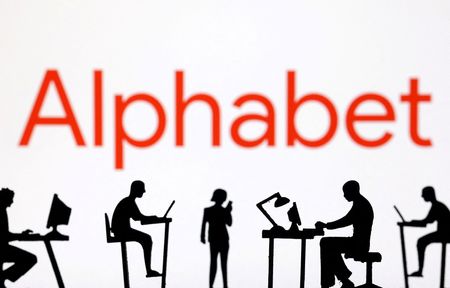MOSCOW (Reuters) -U.S. President Donald Trump’s envoy Steve Witkoff met President Vladimir Putin in Moscow on Friday to discuss a U.S. plan to end the Ukraine war on terms that Kyiv and its European allies fear are too advantageous to Moscow.
Witkoff has emerged as Washington’s key interlocutor with Putin as Trump pushes for a deal to end the war, now well into its fourth year, and has already held three long meetings with the Kremlin leader.
His latest trip follows talks this week at which Ukrainian and European officials pushed back against some of the U.S. proposals for how to settle the conflict, the deadliest in Europe since World War Two.
Video published by the Kremlin showed Witkoff and Putin shaking hands and exchanging pleasantries before sitting down on opposite sides of a white oval table.
Putin was accompanied by his foreign policy adviser Yuri Ushakov and investment envoy Kirill Dmitriev.
Witkoff’s latest visit comes a day after Trump criticised a Russian missile and drone attack on Kyiv that killed at least 12 people, and posted on social media: “Vladimir, STOP!”
But Trump also said there had been significant progress in peace talks.
“This next few days is going to be very important. Meetings are taking place right now,” Trump told reporters on Thursday. “I think we’re going to make a deal … I think we’re getting very close.”
While delivering upbeat comments on the chances of an agreement, Trump has also warned both sides that the U.S. will walk away and abandon its effort unless there is genuine progress.
NEWCOMER TO DIPLOMACY
Before the Kremlin meeting, Russian news outlet Izvestia published photographs showing Witkoff strolling in central Moscow with Putin’s investment envoy Dmitriev, who has played a prominent role in contacts with the Trump administration.
Witkoff, a former real estate investor with no prior diplomatic experience, has been portrayed by critics as out of his depth when pitched into a head-to-head negotiation with Putin, Russia’s paramount leader for the past 25 years.
Some have accused him of echoing the Kremlin’s narrative. In an interview with journalist Tucker Carlson last month, for example, Witkoff said there was no reason why Russia would want to absorb Ukraine or bite off more of its territory, and it was “preposterous” to think that Putin would want to send his army marching across Europe.
Ukraine and many of its European allies say the opposite – that Putin, unless stopped from doing so, would try to overrun Ukraine and potentially attack a European NATO member. He denies any such intention, and Moscow has repeatedly cast such charges as evidence of European hostility and “Russophobia”.
According to texts seen by Reuters, the peace proposal Witkoff has presented calls for de jure U.S. recognition of Russia’s control over Crimea – the Ukrainian peninsula Moscow seized and annexed in 2014 – plus de facto recognition of Russia’s hold on areas of southern and eastern Ukraine that Moscow’s forces control.
A rival European and Ukrainian document defers detailed discussion about territory until after a ceasefire is concluded, with no mention in the document of recognising Russian control over any Ukrainian territory.
There are also differences over the lifting of sanctions on Russia, the shape of security guarantees for Ukraine and the size of the Ukrainian military.
(Reporting by Reuters; Writing by Mark Trevelyan; Editing by Philippa Fletcher)











